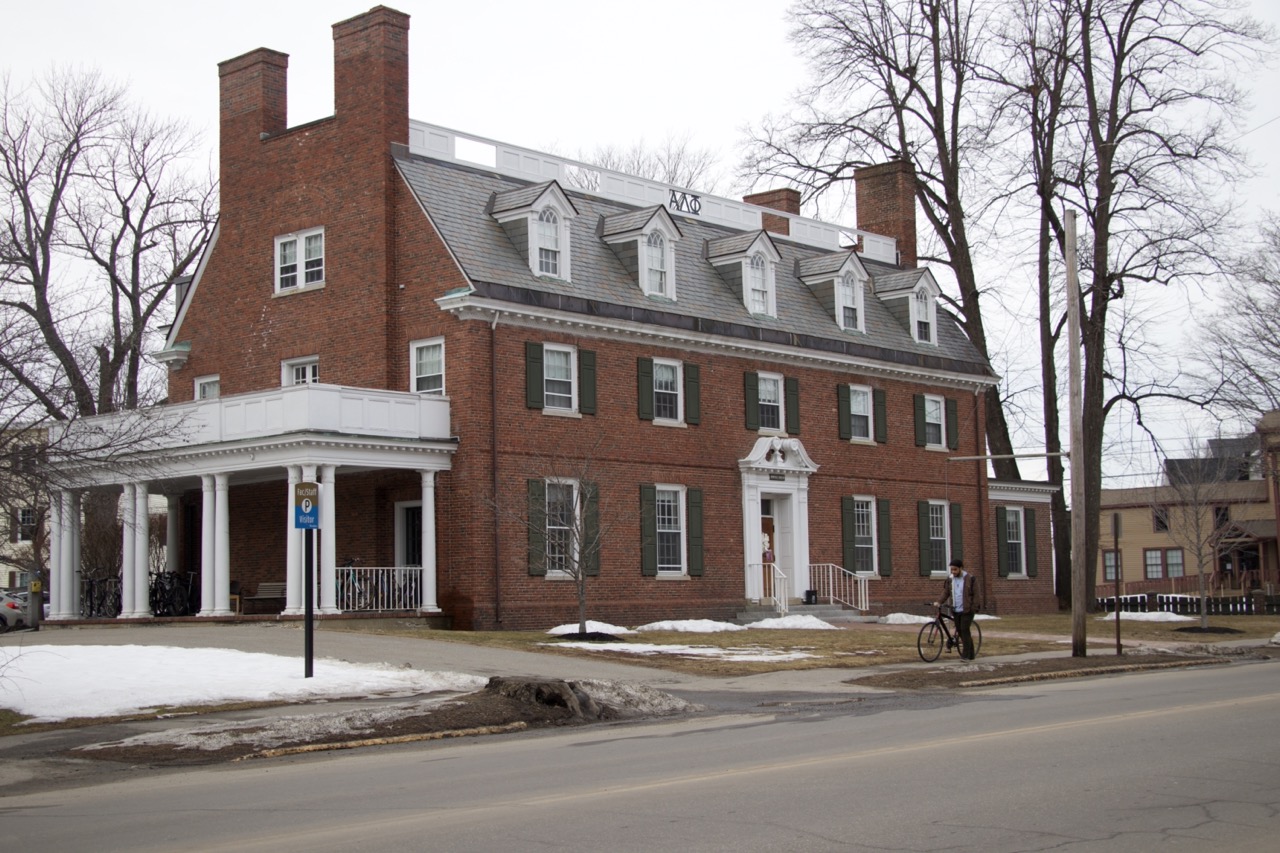College house applications decline for the Class of 2026
February 17, 2023
 Andrew Yuan
Andrew YuanFrom Maine Hall to MacMillan House, from Hyde to Helmreich, the Class of 2026 is preparing to move out of the first-year bricks and into the College Houses.
Of the 511 students in the Class of 2026, 280 students—about 55 percent—applied to live in a College House, according to the Office of Residential Life. This represents a decline in interest from last year when about 64 percent of the Class of 2025—or 329 students—applied to live in a house.
Unlike in previous years, students were unable to rank the houses to which they applied according to their preferences. Instead, students were asked to simply apply to all houses for which they wanted to be considered.
“A lot of the house selection process is choosing where we believe applicants will both provide the most for the house experience while also getting the most out of the house experience,” Interim Assistant Director for Residential Life Alex Gates said. “Sometimes the ranking system made that harder, sometimes easier. It’s more about trying something new and seeing how it works.”
Considered to be the “living rooms” of campus, the College Houses are intended to anchor social life at Bowdoin. College Houses host a variety of events throughout the year but are widely noted for their Friday and Saturday night parties. Many Bowdoin students thrive socially on the dance floor, but others find the loud music and sweaty throngs of classmates fatiguing.
Jack Frohling ’26 finds himself among those who do not seek out parties and therefore did not apply to live in a College House.
“I [prefer] small friend gatherings to large parties, so I felt like an environment where there were large parties happening fairly constantly would not be suitable for me,” Frohling said.
Similarly, Tom Wilson ’26 agreed that, though he often enjoys attending College House parties, the pressure to regularly host social events clashes with his desire for a peaceful living environment.
“I don’t want the whole party atmosphere in my living space. I like to go every now and then, but I don’t like to be living in the midst of it,” Wilson said.
The Class of 2026 appears cognizant of concerns like Wilson’s, and is open to hosting and advertising a wider range of events in addition to parties.
“People applied [to the College Houses] for different reasons, and trying to respect that and find the ways that everyone can best operate within that [is important] because not everyone in the house is going to be a party person,” Ainsley Morrison ’26 said.
Social gathering preferences aside, students are itching for more opportunities to forge genuine connections with their peers in the wake of the Covid-19 pandemic. Lulu Pumayalli ’26, who applied to live in a College House, suggests that the College Houses could be a powerful means of creating such opportunities.
“I wish there [were] more activities in daylight [where people can] get to know each other and make a personal connection, rather than just seeing each other at a party for like five minutes and asking names,” Pumayalli said.
In 2013, the College made strides to extend this sense of community to new students by introducing a College House affiliate system designed to connect each first year with a house and its members. For some first years, this system has been integral to easing the college transition.
“At the beginning of the first year, I hadn’t really visited campus before, so when we arrived here in August, I [felt] like the College Houses were a way to meet upperclassmen and get to know other first years,” Pumayalli said.
While many have found College House programming to foster meaningful social connection, especially at events early in the fall semester, others feel differently.
Alec Rothkowitz ’26 was initially hesitant to apply to live in a College House because of a lack of engagement with his affiliate house.
“Part of the problem is the [first years] don’t feel very well integrated…. I have only been to a single event with my [affiliate] College House, and they’ve only really offered three, and that was all in the first semester, so I’ve barely seen them,” Rothkowitz said.
General attitudes from first years towards the College Houses are lukewarm, but this year’s applicants are optimistic about transforming the College Houses into more welcoming spaces for everyone on campus.
“Of course, we were invited [to events], but sometimes it didn’t feel like the move to go,” Pumayalli said. “I want to make it a place where first years feel like they’re always welcome.”
Comments
Before submitting a comment, please review our comment policy. Some key points from the policy:
- No hate speech, profanity, disrespectful or threatening comments.
- No personal attacks on reporters.
- Comments must be under 200 words.
- You are strongly encouraged to use a real name or identifier ("Class of '92").
- Any comments made with an email address that does not belong to you will get removed.

This is the natural consequence of the sophomore nerd population. So many nerds but not enough party animals. The youth crave parties and epic ragers on the weekend (within reason and following Bowdoin’s rules of course). Perhaps the class of 2026 will make partying cool again.